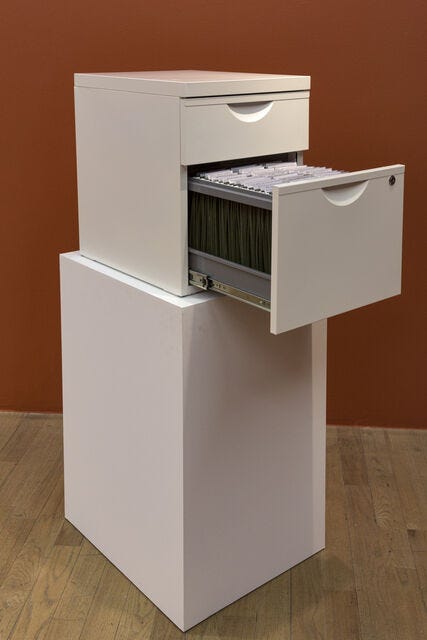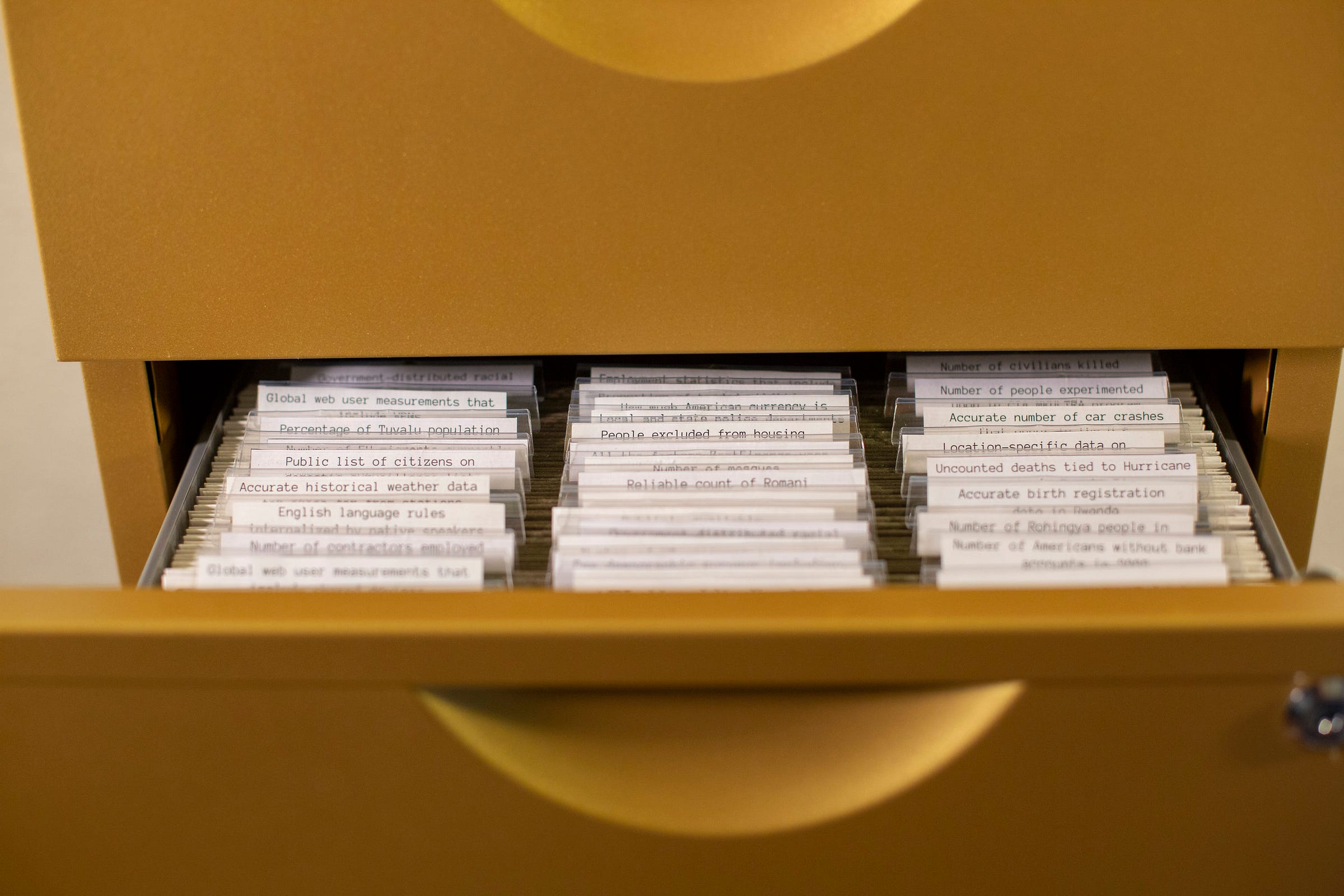𝐄𝐦𝐩𝐭𝐲 𝐋𝐢𝐛𝐫𝐚𝐫𝐢𝐞𝐬
The presence of absence feat. Mimi Onuoha
Greatness often happens in the gaps.
The blurry edges.
And there are artists out there making incredible work from data... it’s just that Mimi Onuoha makes hers based on where data is absent.
The Library of Missing Datasets is a series of installations that prod the soft underbelly of a world increasingly reliant on information.
So much of our environment and decision-making is influenced by confidence in what can be measured and reported, but–
“That which we ignore,” Onuoha writes, “reveals more than what we give our attention to. It’s in these things that we find cultural and colloquial hints of what is deemed important.”
For most of us, data shapes our world invisibly. I rarely think about how my experiences with government services and tech giants are influenced by the data they hold on me, let alone the flaws inherent in their imperfect methods of collection.
“Missing data sets” are my term for the blank spots that exist in spaces that are otherwise data-saturated. My interest in them stems from the observation that within many spaces where large amounts of data are collected, there are often empty spaces where no data live. Unsurprisingly, this lack of data typically correlates with issues affecting those who are most vulnerable in that context." – Mimi Onuoha
Onuoha talks about vast swathes of people – coastal communities, favelas – that are simply not on the map. From a digital standpoint, they don’t exist. But that doesn’t mean they’re not there.
Her series The Library of Missing Datasets is an artistic expression of her research.
Old-fashioned steel cabinets of empty folders catalogue the missing pieces.
Sales and prices in the art world (and relationships between artists and gallerists). People excluded from public housing because of criminal records. Muslim mosques/communities surveilled by the FBI/CIA. LGBT older adults discriminated against in housing. Undocumented immigrants currently incarcerated and/or underpaid. Firm statistics on how often police arrest women for making false rape reports. How much Spotify pays each of its artists per play of song.
Ohuoha makes our vulnerability tangible. Draws physical attention to what we lose when we’re confident about the facts we hold. About the ways in which our endless data fails us.
Just because it’s missing, that doesn’t mean it’s not there.
.
.
.
Onuoha’s original paper and ongoing github
The Point of Collection – Mimi Onuoha





“That which we ignore reveals more than what we give our attention to.” -- so true and profound! Absolutely love discovering her work! Thanks for sharing 🙌